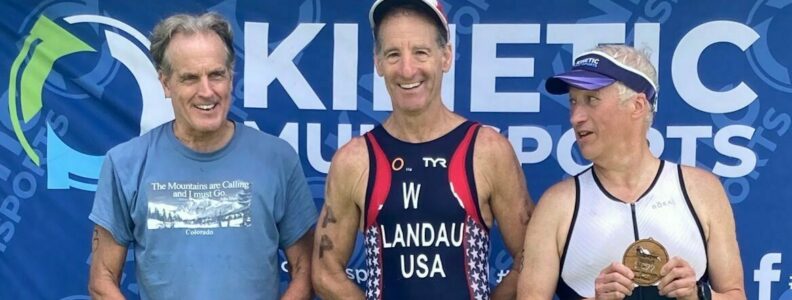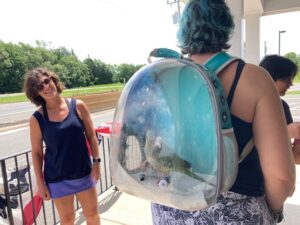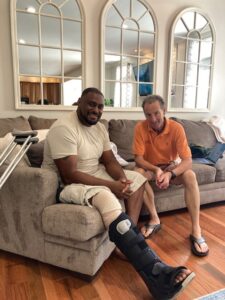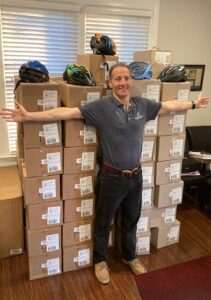
Triathlon Lawyer Landau Interview

Through our websites, specifically our sports website, Landau likes to write about unusual races or events. He also likes to feature races that support wonderful charities, such as: Northern Virginia Therapeutic Horse Riding, the Chesapeake Bay Foundation and The Wounded Warrior Project. Landau sponsors Kinetic Multi-Sports Virginia & Maryland series. This encompasses 21 weekends of events, enabling participants to do triathlons, duathlons, aquavelo, and bicycle events. In addition, Landau is a sponsor of the Franklin Farms Frogger Swim Team, and many talented swimmers do then go on to become excellent triathletes.

Before Covid, Landau routinely met clients at competitions. Doug published his schedule, and if we had a client nearby, it would be much easier for them to meet with lawyer Landau in their backyard than if they came to Herndon. “As long as clients are comfortable with me without a lawyer suit, I don’t mind seeing them before or after races when staying in another State or County close to them. I have visited with clients in Sydney, Australia after a World Championship, and Co-Counsel in Penticton, Canada after another World Championship. Because we have represented injured triathletes and cyclists, I have competed against former clients. Depending on how you look at it, fortunately or unfortunately, some have have clobbered me in races. I enjoy meeting with clients all over the country, and I hope that as things return to pre-pandemic, I will have the opportunity to do so again.”

9. What preventative measures do you take to prevent an injury?
“I make sure my helmet is in good working order and properly clipped. In addition, I try to preview the course, so I know where there might be potholes, glass, or other dangerous elements. While I used to not take on water during races for most of my career, I now bring water and splash my head for hot races. I don’t mind the heat or the humidity, but you want to keep the fluids coming during longer events. Lastly, I get my bicycle regularly tuned up at the Green Lizard or Transition Triathlon so that it is safe to ride. I always bring extra swim goggles that I can see where I’m going, and wear a heart rate monitor.”
10. How do you balance being a lawyer and athlete?
“I balance being a lawyer and a triathlete by trying to incorporate both efficiently. Once I know I have a case in another state, I look for a race that I might be able to do en route. When I get to the location, I’ll look for a space to see a client in person while I’m there. I also look for family or other friends, and it has worked out very well. It’s rare that I go, and don’t make a pit-stop to visit with a client, friends, see a place I’ve never seen, or take photos or measurements for one of our pending cases. It’s ‘Cases, Races, Places & Faces!'”
.
If you, or someone you care for, need any legal advice or have experienced an injury through no fault of your own, while training, racing or just participating in a recreational activity, please contact frontdesk@landaulawshop.com or call (703) 796-9555
